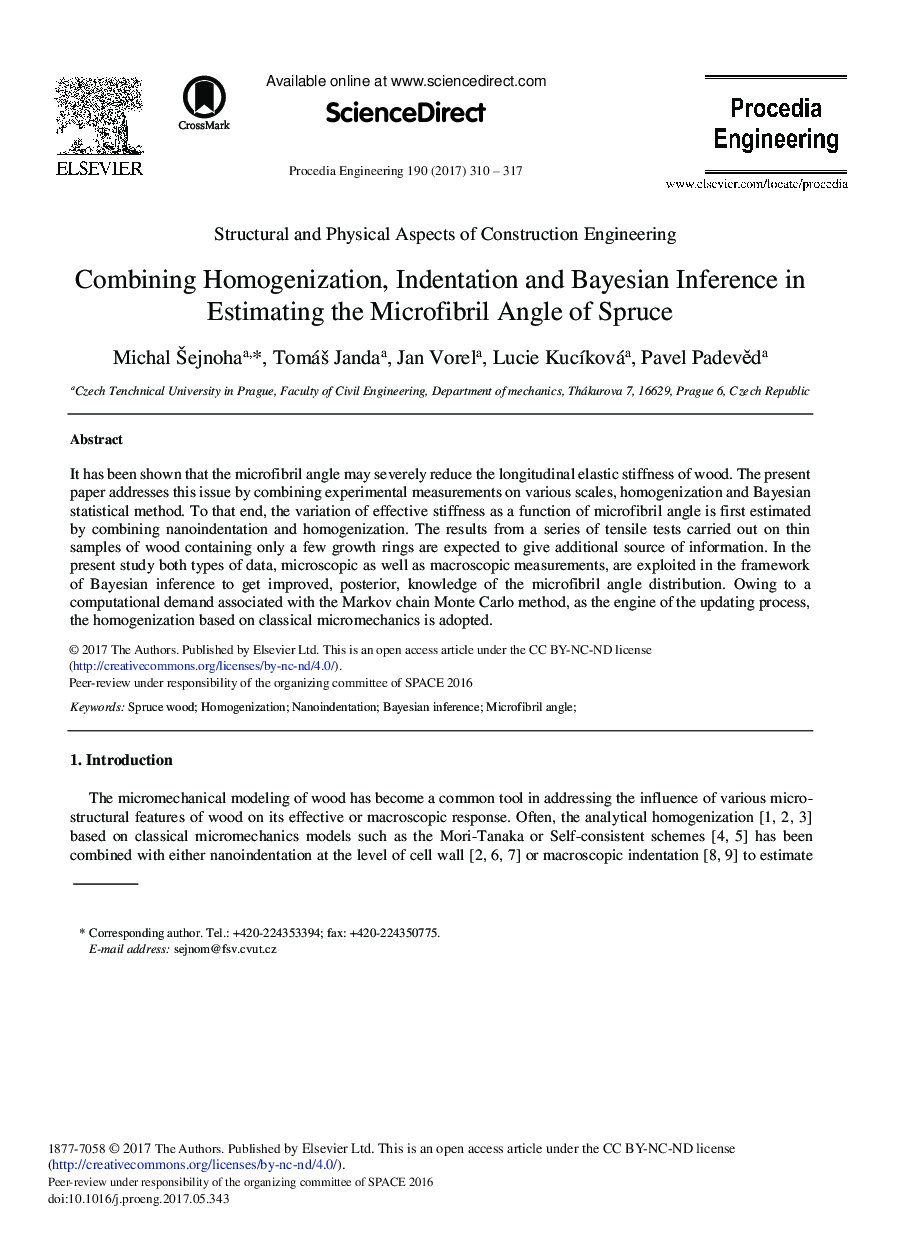| Article ID | Journal | Published Year | Pages | File Type |
|---|---|---|---|---|
| 5027211 | Procedia Engineering | 2017 | 8 Pages |
It has been shown that the microfibril angle may severely reduce the longitudinal elastic stiffness of wood. The present paper addresses this issue by combining experimental measurements on various scales, homogenization and Bayesian statistical method. To that end, the variation of effective stiffness as a function of microfibril angle is first estimated by combining nanoindentation and homogenization. The results from a series of tensile tests carried out on thin samples of wood containing only a few growth rings are expected to give additional source of information. In the present study both types of data, microscopic as well as macroscopic measurements, are exploited in the framework of Bayesian inference to get improved, posterior, knowledge of the microfibril angle distribution. Owing to a computational demand associated with the Markov chain Monte Carlo method, as the engine of the updating process, the homogenization based on classical micromechanics is adopted.
